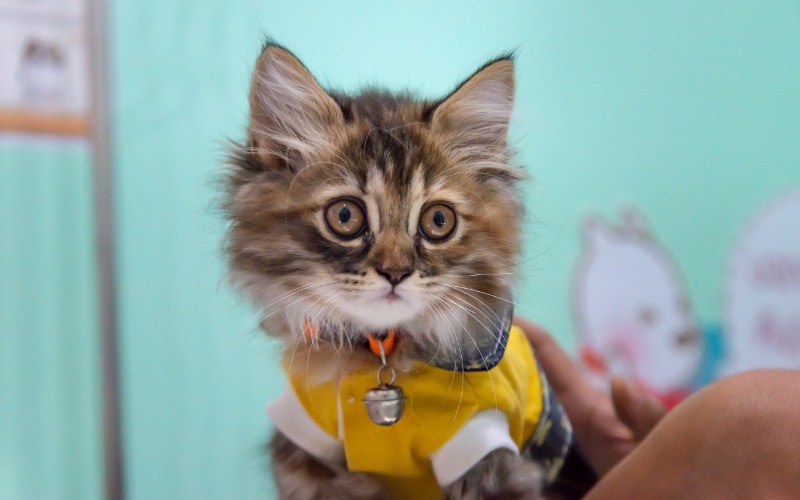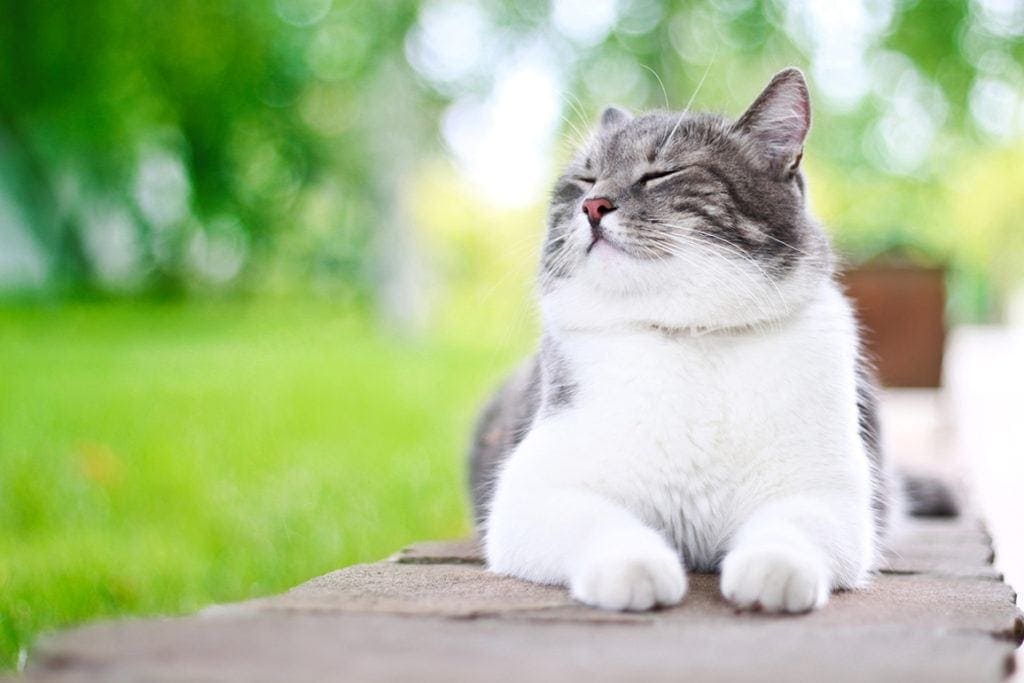How to Tell if a Cat Is Dying: 7 Vet-Reviewed Signs to Look Out For
Updated on
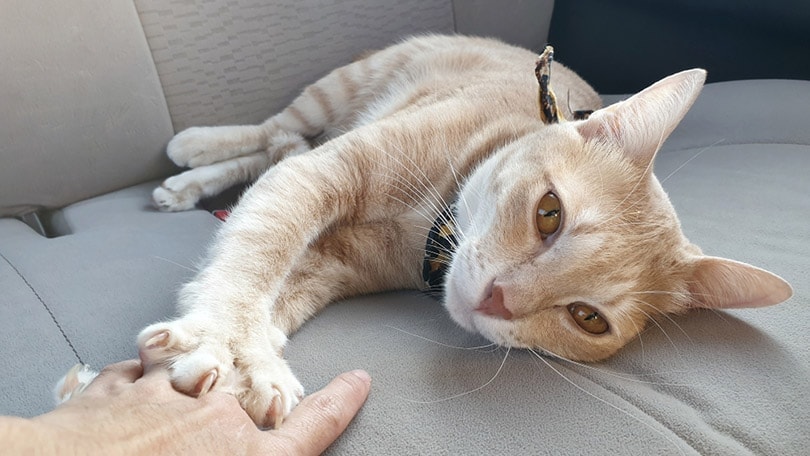
It’s something every cat owner must face eventually and it’s never easy to do. Eventually, our beloved cats will reach the end of their lives and we have to say goodbye. When we commit to being a cat owner, we understand that this is inevitable. The last act of respect and love we can show to our cats is keeping their final days as comfortable as possible. But how do we know when our cat is dying?
It can be hard to tell, especially for first-time cat owners, because cats are very good at hiding their pain and illnesses. By the time they start showing signs of being sick, the illness is usually advanced. This is a good survival tactic, but it’s challenging for pet owners who want to keep their cats healthy and comfortable.
Here are some signs to look for in your cat that may indicate that they are nearing the end of their life. There is a lot of crossover between the signs of being ill in general and nearing the end of life. These signs are especially important to watch for if you know your cat has a terminal illness.
The 7 Signs How to Tell if a Cat Is Dying
1. Hiding
Your very social cat is now hiding in odd places and wants to be left alone. This is a huge sign that something is wrong. Wanting to be alone and hidden away is an instinctual behavior for cats that are dying. They may even get irritated and angry if you try to pet them and be near them. Cats can try to calm themselves and relax by keeping to themselves.
If your cat hides a lot normally, this can be difficult to distinguish from their regular behavior. Watch for them to start to hide in new places or refuse to come out to eat or use their litter box.
Alternatively, some cats will do the opposite and seek much more affection than usual. At first, this can be a welcome change if you normally have an aloof cat but take note of any other changes to see if they may be feeling unwell and soliciting extra attention.
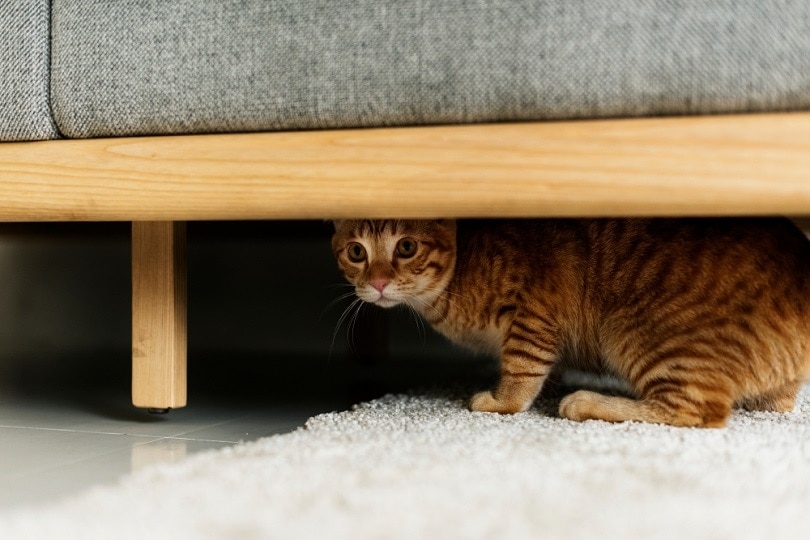
2. Lack of Appetite
When cats are dying, they refuse to eat. Some cats don’t have any appetite at all. Others are too nauseated to eat and will retch at the smell of food. Even their favorite food or treats will be unappealing to them if they are nauseous from illness.
As the cat gets closer to the end of their life and they aren’t eating, it can be impossible to get them to eat anything at all.
3. Low Body Temperature
Cats that are dying often can’t regulate their body temperature anymore. They can feel cold to the touch. Even if you try to keep them warm, they will remain cold. Their ears, feet, and tails will often be cold, as well.
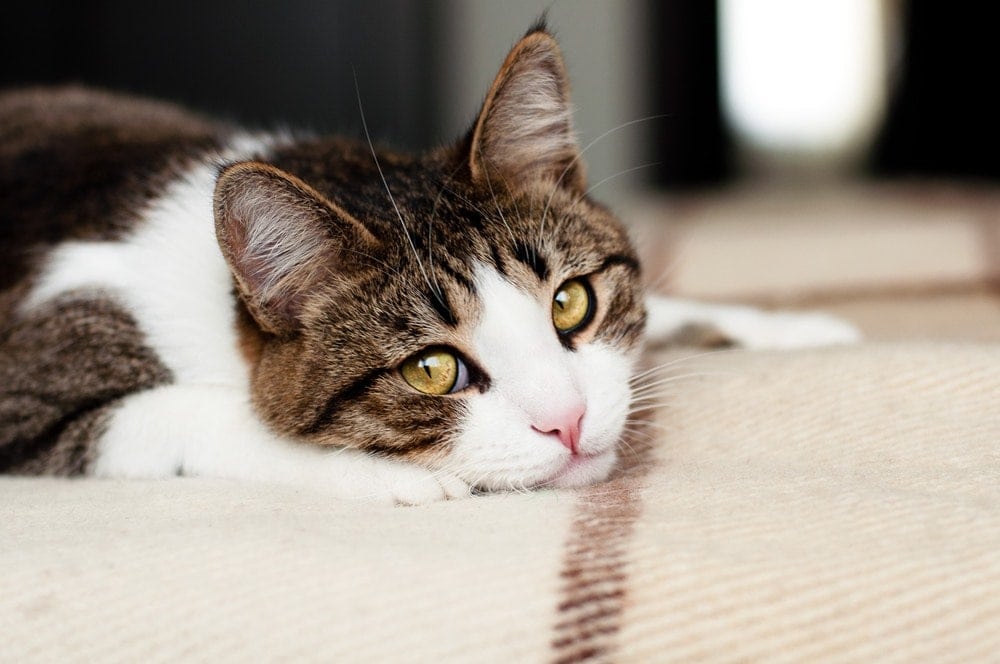
4. Poor Coat Health
Cats that are too sick to groom themselves often look disheveled and unkempt. Cats with long hair can look matted and dirty. Short-haired cats can look greasy, scruffy, and oily.
5. Unusual Odor
Dying cats can often have an unusual smell to them. This is because tissues are breaking down in their bodies and toxins are building up. The smell can vary depending on your cat’s illness, but any new odor to their bodies can be a sign.
6. Lethargy/Weakness
Cats nearing the end of their lives will stop being as active as they once were. They tend to sleep much more than normal and appear depressed when they are awake. They have no interest in their favorite activities or toys anymore.
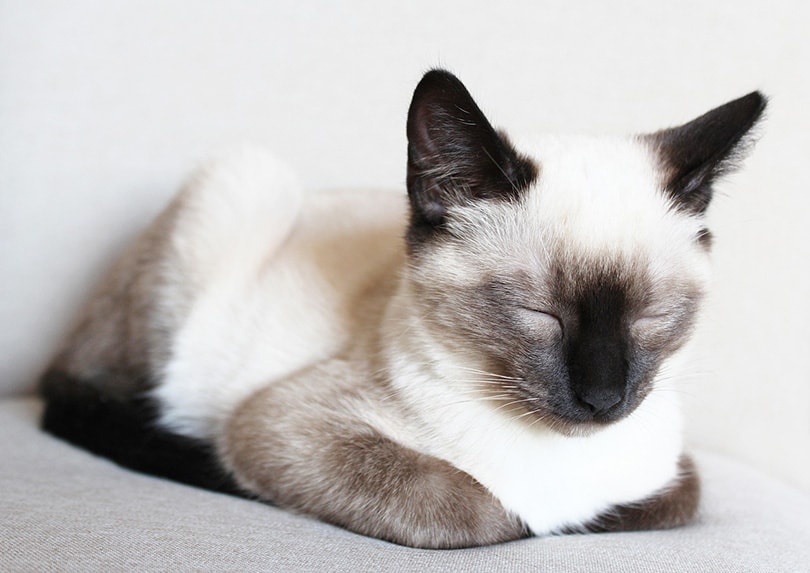
7. Incontinence
Cats can become too weak to make it to their litter boxes and instead urinate or defecate on themselves.
What to Do
If you notice any of these signs in your cat, the first thing to do is take them to the vet. The signs discussed above are not specific to any single illness and should be used as a guide if your cat is very unwell. Once at the vet, a complete examination can be done to determine your cat’s illness or determine if an illness you are aware of has advanced. Your vet can also give you an estimation of how much time they have left and what their prognosis is.
Many vets can arrange to come to your home if bringing your beloved cat to the clinic is too difficult. There are also vets who specialize in end-of-life care and euthanasia as an ambulatory service.
From there, the decision is up to you. Depending on how extreme your cat’s situation is and what their final days will be like, you may decide on humane euthanasia. This will prevent your cat from further suffering and give them a comfortable, peaceful passing. This is one of the hardest decisions to make as a pet owner.
You may also decide to bring your cat home and offer palliative care to keep them as comfortable as possible during their final days. This end-of-life plan should be discussed with your veterinarian so that you are familiar with any medications, fluids, and treatments you’ll be administering.
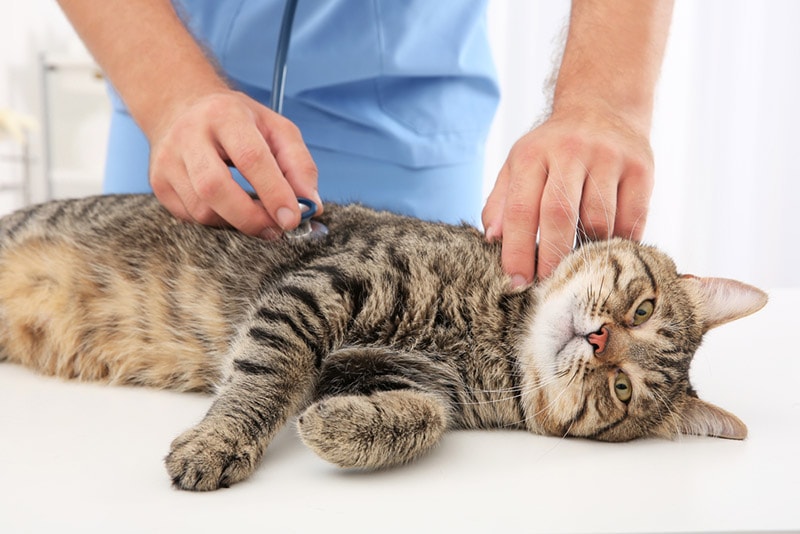
Hospice Care for Cats
After you speak with your vet and come up with a plan for at-home treatment for your cat, you can begin the process of caring for them at home.
- Set up a comfortable environment. Make sure they have easy access to their litter box, food and water bowls, and a comfortable bed. These should all be in the same room so that your cat doesn’t have to move too much to reach them.
- Be prepared to supplement their diet. Cats that are refusing food may only eat things that have been cooked by you, like chicken or turkey. Hand-feeding your cat may be necessary at this stage. Offer your cat anything they like, taking guidance from your vet. Tuna, liquid cat foods, diced chicken, or cooked ground beef may entice them and be the only things they want. At this point, whatever they will eat is fine to give them if it isn’t toxic to cats. You may have to try different things, like liver sausage or hot dogs, to find something they want.
- Cats should be kept warm since they will have difficulty controlling their body temperatures. Adding soft blankets to their bed will help them stay warm and therefore, more comfortable.
- Groom your cat if necessary. You may have to wipe them with warm washcloths since they stopped grooming themselves. Remove any soiled bedding and replace it. If they’ve soiled themselves, clean them with warm water and mild soap.
Should I Euthanize My Dying Cat?
While this is a personal decision, there are some things to consider when making it. As hard as it is to watch your cat suffer, it can also be equally hard to let go. This is a huge responsibility and one we may want to shy away from, your vets are there to help guide you in this. It is a complicated decision to make.
Euthanasia and palliative end-of-life care are accompanied by a sense of loss and grief but take comfort in knowing you are doing the best you can for your pet when they need you most. Know that you are doing all you can to prevent further suffering.
Here are some questions to ask yourself to help you decide what the best thing is to do.
- Am I keeping my cat alive for myself or for them?
- Does my cat still get pleasure from their favorite activities?
- Is my cat enjoying life still, in any significant way?
- Does my cat have more bad days than good days?
- Is my cat eating, drinking, and using the litter box on their own?
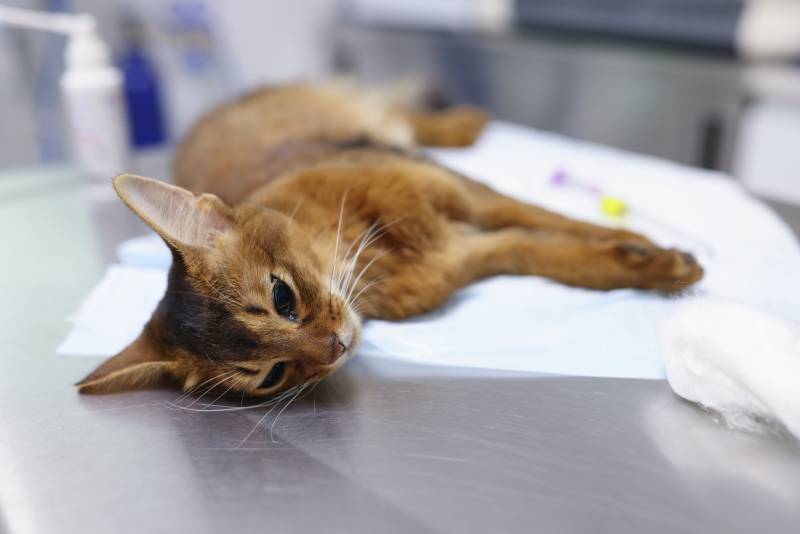
Should I Choose Hospice Care Instead?
If you can’t decide if your cat should live out their final days at home with you, here are some things to consider.
- Your finances: Hospice care for cats can be expensive, sometimes requiring medical treatments and certain equipment such as IVs and catheters.
- Your time: Hospice care for cats is a 24/7 job. If you work long hours or travel frequently, you may not be able to provide this type of care.
- Your physical abilities: Caring for a terminally ill cat means you will have to lift them frequently.
- Your emotional capacity: Hospice care is emotionally draining and can take a toll.
 Final Thoughts
Final Thoughts
Saying goodbye to your cat is never easy. Being aware of the signs that they are nearing the end of their life can help you determine which course of action to take.
If you notice these signs in your cat, take them to the vet right away for an examination. They will be able to tell you what’s happening and if your cat has a terminal illness. If you are aware that your cat does have a terminal illness already, they will be able to tell you how far it’s progressed.
By working with your vet, you can come up with the right plan to give your cat the dignity and respect they deserve during their final days. We have focused on your cat in this article but if you feel you need help with this decision or after your cat has passed many veterinary practices have trained bereavement counselors or can direct you to support services.
Featured Image Credit: RJ22, Shutterstock




